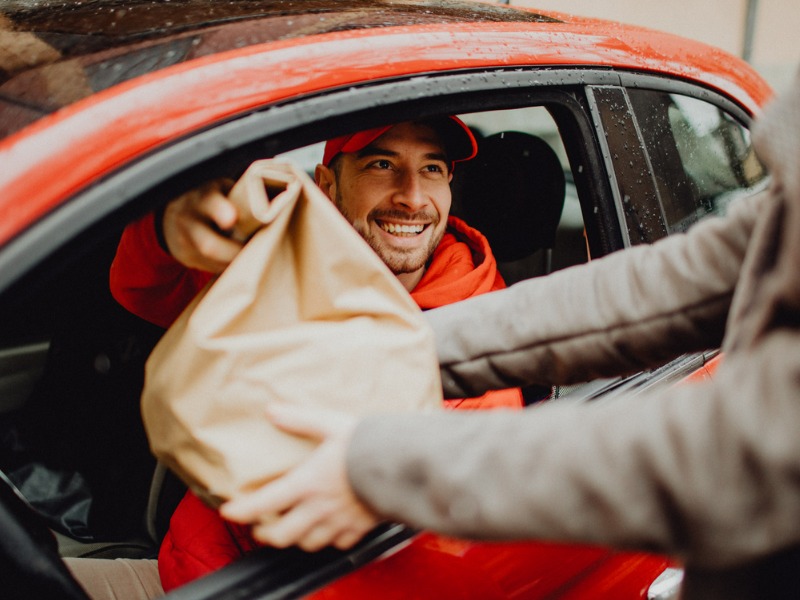How accident claims hit rideshare drivers’ personal auto policies

There seems to be a disconnect between drivers and their insurers about the ability to access personal auto coverage when driving for food delivery or rideshare companies like Uber, Lyft and others.
While there’s no hard data to quantify a trend, Jesica Ryzynski, a claims specialist with Mitch Insurance, said she’s seeing more claims in this area, and is currently managing three.
The cases involve drivers working in food delivery or rideshare jobs who had accidents that led to claims against their personal auto coverage. Insurers may deem such claims fraudulent, but she said drivers she’s spoken with genuinely appear to not understand why.
“What I’m seeing [in these three claims] is the insureds sincerely did not seem to have any idea why this [had] gone into an investigative state,” Ryzynski told CU. “The insureds didn’t seem to connect that maybe there was something wrong with what they’d been doing.”
During an investigation, clients frequently are asked for extensive documentation, including bank and credit card records that show details like sources of funds deposited into bank accounts, and where and how often they stopped for fuel. Some clients Ryzynski’s working with hand over these documents willingly, enforcing the notion they’re truly in the dark about the rules.
Insurers aren’t consistent about permitting policyholders to work as delivery or rideshare drivers using personal vehicle coverage. Many forbid the practice, but some allow it with no additional premium, provided the insurer is told and the customer has a good driving record.
“As long as it’s something where there is insurance [provided by the rideshare or delivery company] in place when that vehicle is in use for [that purpose], then they’re fine,” she said. “There’s one company that offers an endorsement, about $50, when they find out they’re doing rideshare.”
But very few insurers are okay with food deliveries.
“Statistically, it is a nightmare for claims because of that speed factor. ‘We’ve got to get this where it’s going while it’s still warm,’ or ‘I’ve got to get three deliveries done in this amount of time in order to make my money,’” said Ryzynski.
Exactly why clients don’t grasp where insurers stand on rideshare or delivery is a bit of a mystery, since questions about using vehicles for those occupations are asked during the insurance application stage.
“Those questions are asked to 100% of people. They’re on a checklist,” she said.
Plus, the questions are reiterated each time an auto client contacts the brokerage regarding a change of address or with questions about vehicle coverage.
It’s possible the confusion stems from the fact that rideshare and delivery platform signup websites indicate the company has its own insurance. New hires might believe they’re covered but will quickly learn that coverage is limited if there’s an accident. And bigger issues arise if claims are made against a client’s personal auto policy.
“It doesn’t extend to personal use. It’s only when that vehicle’s being operated for [the delivery or rideshare company] and only when [that company’s] app is on,” Ryzynski said. “However, we all know that if someone is injured, especially seriously, they’re going to go after anybody and everybody. So that personal insurance policy could very likely get called into play, even if [the rideshare company] app is on and that company responds first.”
One particular case she’s managed involved a food delivery driver picking up an order when someone hit his car in the parking lot and fled.
“So that person was gone. The driver reported it to the police and filed a claim with their personal insurer. And then through that claim the personal insurer realized they were picking up for a delivery [company]. This is not something they were aware the vehicle was being used for,” she told CU.
“And that’s [why] these claims are denied. It’s because the company wasn’t advised. It’s a misrepresentation of use.”
Feature image courtesy of iStock.com/ReMa







